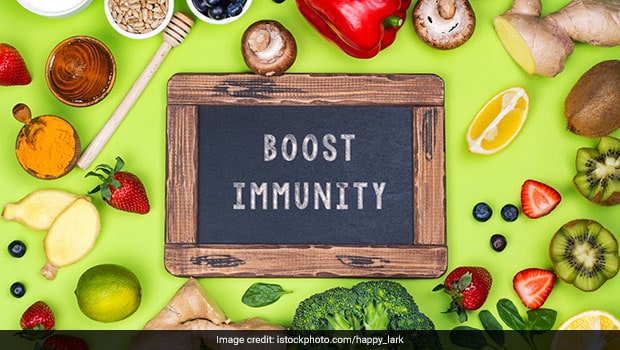Amidst the second wave of COVID-19 and the subsequent lockdown, it has become crucial to take utmost care of yourself and your family. While taking all preventive measures and staying at home are something we all must follow, being a little proactive for our safety isn’t a bad idea.
Let’s build our immunity stronger at home with these simple tips.
- Nutrition
It’s a no-brainer that our immune system runs on food. A healthy immune system needs healthy nourishment to wage war against diseases. For that, we need nutrients like whole grains, legumes, vegetables, fruits, nuts, and animal source foods to get a balanced diet.
As per WHO, a healthy diet includes:
- Fruit, vegetables, legumes, nuts, and whole grains
- At least 400g of fruit and vegetables per day, excluding potatoes, sweet potatoes, cassava and other starchy roots
- Less than 10% of total energy intake from free sugars
- Less than 30% of total energy intake from fats
- Less than 5g of iodized salt (~ 1 teaspoon)
- Exercise
We all know that exercise is good for fitness and keeping bones strong. It also helps decrease your chances of developing heart disease. But when it comes to boosting our immunity, we don’t exactly know how both are correlated. Though as per Mediline Plus, there are several theories.
- Physical activity may flush out bacteria from the lungs and airways
- Exercise may induce changes in antibodies and WBCs, helping them detect illnesses faster
- The increased body temperature while exercising may prevent bacteria from growing
- Exercise slows down the release of stress hormones, reducing the chances of illness
It’s time to get moving and have a refreshing exercise session!
- Sleep
What better than building your immunity in your sleep, right?
Healthline states that sleep and immunity are closely tied. Insufficient sleep may lead to a higher susceptibility to sickness and getting adequate rest may strengthen your natural immunity. And in case you are sick, then you should sleep even more to allow your immune system to better fight the illness.
Finding it difficult to sleep on time? Here are few tips that might help:
- Limit your screen time before bed
- Sleep in a dark room or use a sleep mask
- Schedule your sleeping time every night
- Exercise regularly
- Hydration
We all keep hearing that we should drink a lot of water as it may help us with a lot of problems, including weight loss, digestion, skin problems, etc. But can hydration impact our immunity?
According to Healthline, hydration won’t necessarily protect you from bacteria or viruses, but it is, however, important to your overall health. Dehydration can cause headaches, affect heart and kidney function, hinder your activities, focus, mood, digestion, and increasing your susceptibility to illness.
So don’t forget to Gulp! Gulp! Gulp! Especially when you’re exercising and during hot weather.
- Supplements
According to the National Institutes of Health (NIH), there’s no evidence that supports the use of supplements to prevent or treat COVID-19. However, there are some studies reporting positive effects of supplements on our immune response:
- Vitamin C reduces the duration of the cold by 8% in adults
- Vitamin D deficiency may increase your chances of getting sick, so the supplement may counteract this effect
- Zinc reduces the duration of the cold by 33%
- Elderberry helps reduce the symptoms of viral upper respiratory infections
- Echinacea helps in recovering from colds
- Garlic reduces the occurrence of common cold by about 30%
- Stress management
As per Harvard University, a wide variety of issues, like stomach upset, hives, even heart disease, are linked to emotional stress. So yes, our minds and body are quite closely linked.
A Healthline article says that long-term stress leads to inflammation and imbalances in immune cell functioning. So we need to keep ourselves calm and composed to let our immune system work efficiently.
How?
Activities like meditation, yoga, exercise, mindfulness-related activities, and other such practices may help keep stress at bay. You may also consult a licensed counselor or therapist if needed.
Follow these practices at home to boost your immune system and keep yourself safe.
Stay at home. Stay safe.


